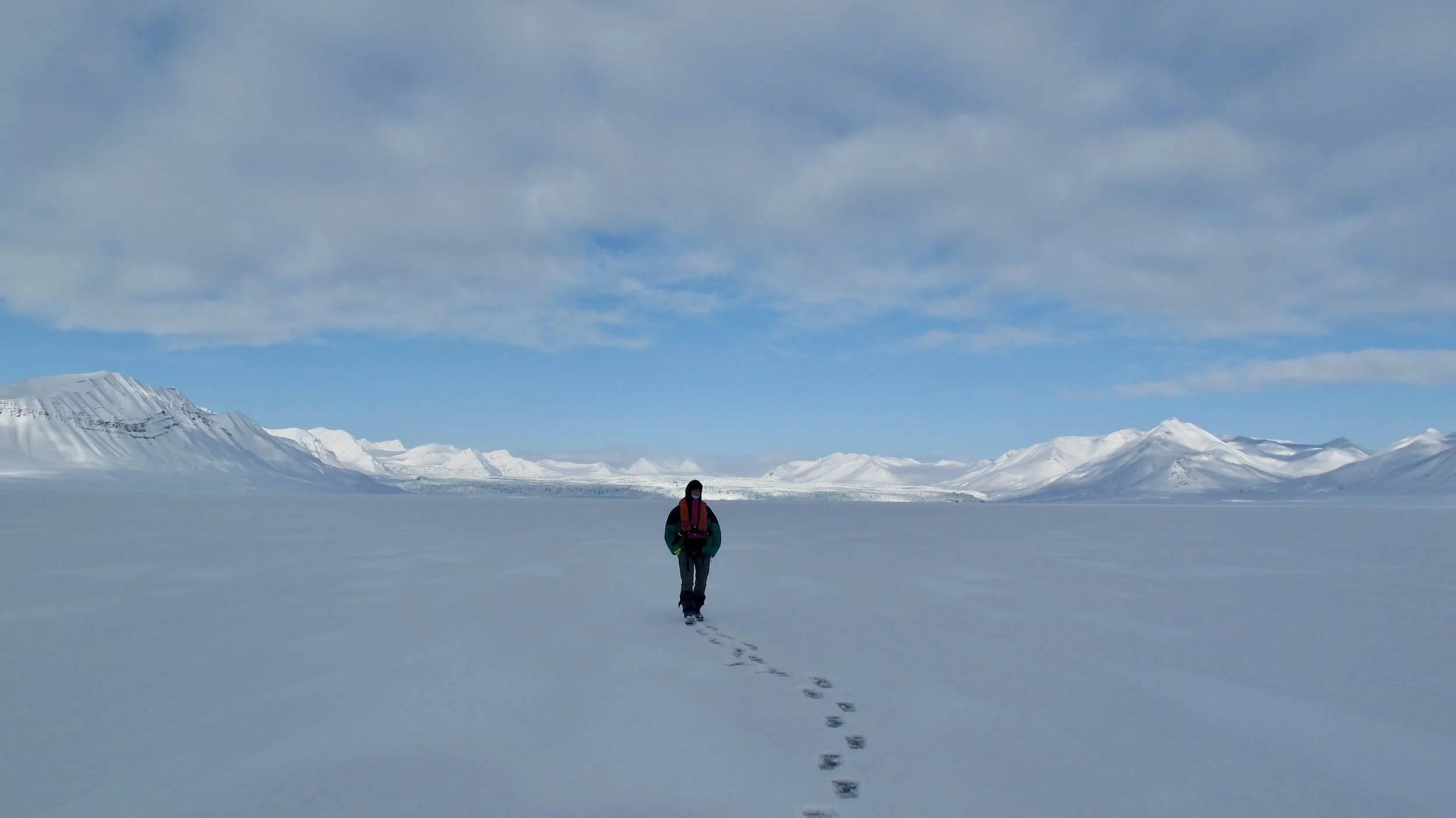So This Is The North? by Clara Arnaud
The ship is a hive of activity, with two days to go. The Barents Sea is waiting for us. Or rather, it’s not waiting, and we need to get the sails up in time to avoid the storm that’s due at the end of the week. For me, it’s sea school on the fast track.
Securing all the equipment.
Sorting and stowing supplies, vacuum-packing and freezing fresh fish.
Washing the oily engine room floor.
Scooping out the bilge.
And forming a long human chain, for hours on end.
Learning the ship’s safety plan.
Between jobs, we sit down at the sound of the bell and fill up on solid, fragrant food—because outside, the cold bites and grips.
Then we raise the anchor, leave the fjord, watch the land drift away and sink into the sea. And soon, the big black sea—and the boat dancing on it. It won’t be the ideal crossing, but it’ll be all right, Rasmus had said. And suddenly, everything is pitching and crashing and falling as the hours pass and the waves swell.
Seasickness is like a giant octopus, grabbing, choking, and harassing me. We take turns on the pontoon in shifts, as a team, to manage navigation and all the essential tasks. I’m on the 4–8 a.m./p.m. watch.
In the depths of that first night, in the depths of great seasickness, I am vomiting and delirious. The others are no more than silhouettes—stocky, short, tall, young, old—and I am no more than a ghost, hovering and clinging to the distance.
“Eat Wasa, drink water,” says a sailor to me. And Linden lies on one side, then on the other, tirelessly rearing up, diving, rising again.
I stare at the water and the indistinct sky and tell myself that childhood stories are lies. The sea isn’t blue. It’s silver, black, grey, green, orange, white—and iridescent, two days later, it turns to glass.
When the weather calms down, it’s the cold that gets us. From now on, we have to watch for sea ice and icebergs that might strike Linden. At the bow, dressed in a far-too-bulky outfit, armed with binoculars, unable to feel my feet or my nose, my face battered by the wind—I’m queen of the world. I laugh like a child and speak to the ghosts of those I recently lost.
The boat is now dressed in white, covered with a blanket of snow, and our movements are muffled.
And whilst I’m on ice watch, the experienced sailors climb the masts, cavort on the pontoon, relentlessly monitoring each constant, while others sleep in their bunks, deep in the belly of the ship—until the next meal, the next watch.
On the fourth day, the coast of Svalbard finally comes into view—a point reached by piercing the veil of icy lenses that cover the sea.
The trees are gone.
The night has disappeared, devoured by the midnight sun.
The men have vanished, invisible in the bay where we dock for a two-day break.
The land has disappeared beneath the ice, the snow.
So this is the North?












